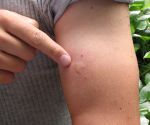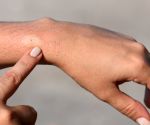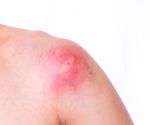Advertisement
As a general rule, call 9-1-1 or the local emergency number if the person has any of the following conditions:
- Unconsciousness or an altered level of consciousness, such as drowsiness or confusion
- Breathing problems (trouble breathing or no breathing)
- Chest pain, discomfort or pressure lasting more than a few minutes that goes away and comes back or that radiates to the shoulder, arm, neck, jaw, stomach or back
- Persistent abdominal pain or pressure
- Severe external bleeding (bleeding that spurts or gushes steadily from a wound)
- Vomiting blood or passing blood
- Severe (critical) burns
- Suspected poisoning
- Seizures
- Stroke (sudden weakness on one side of the face/facial droop, sudden weakness on one side of the body, sudden slurred speech or trouble getting words out or a sudden, severe headache)
- Suspected or obvious injuries to the head, neck or spine
- Painful, swollen, deformed areas (suspected broken bone) or an open fracture
- Fire or explosion
- Downed electrical wires
- Swiftly moving or rapidly rising water
- Presence of poisonous gas
- Serious motor-vehicle collisionsInjured or ill persons who cannot be moved easily
You should call 911 at an emergency scene as soon as you are aware or arrive at the scene. This will allow appropriate personnel trained in these situations and medical equipment to get there quickly.
Continue Learning about First Aid, Safety & Preparedness
Important: This content reflects information from various individuals and organizations and may offer alternative or opposing points of view. It should not be used for medical advice, diagnosis or treatment. As always, you should consult with your healthcare provider about your specific health needs.








